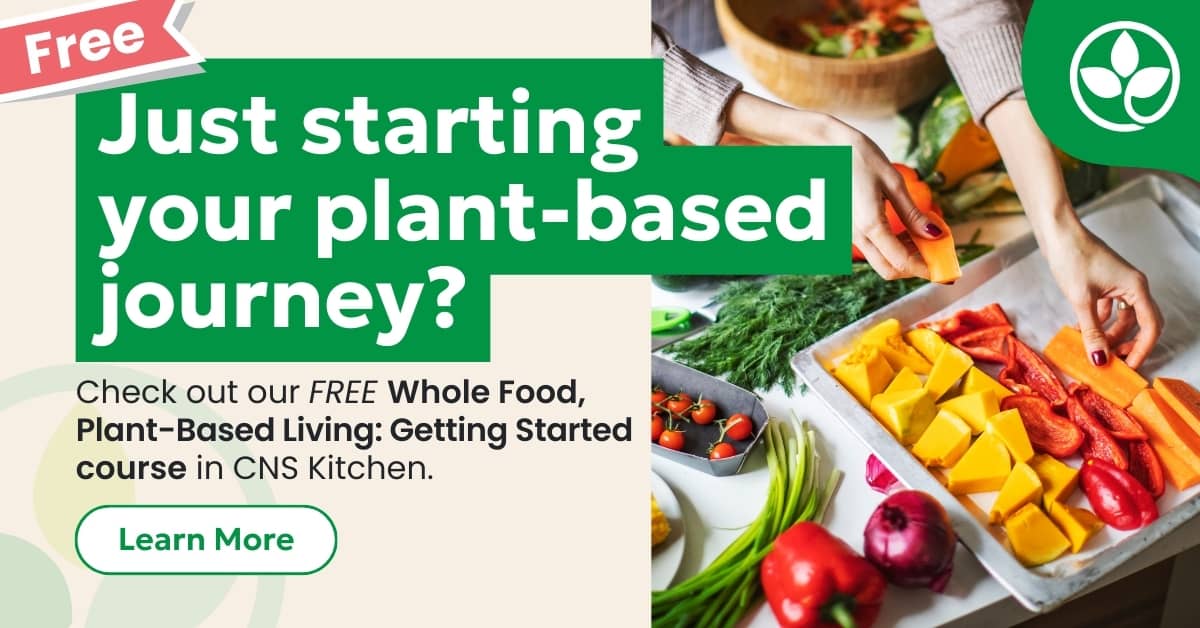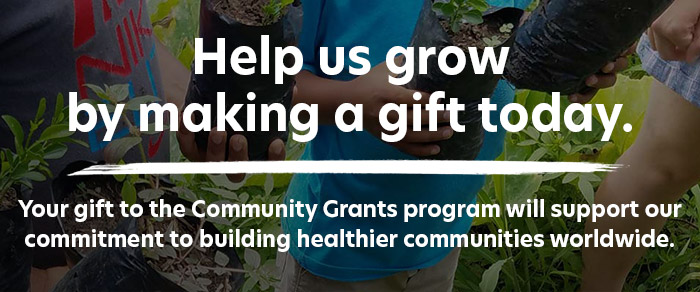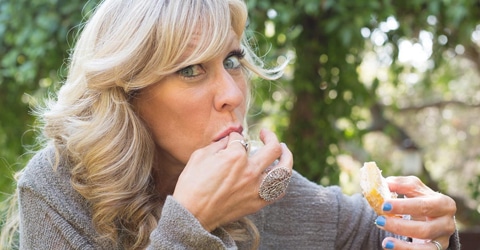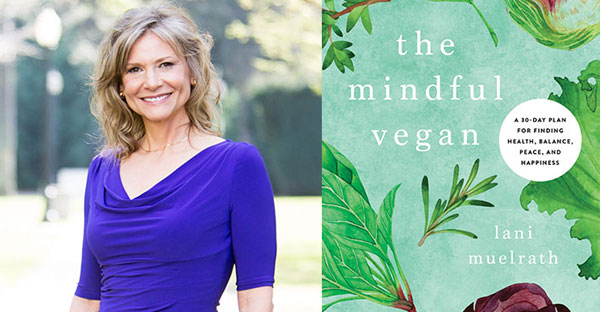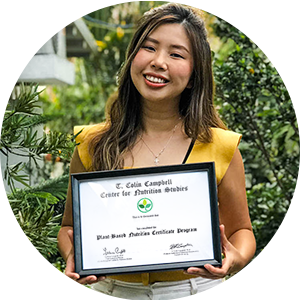
Before I learned to sustainably eat a whole food, plant-based (WFPB) diet free of SOFAS (salt, oil, flour, alcohol, and sugar), my thinking was cloudy, I had very low energy, I slept poorly, and as a result of overeating, I was clinically obese. In 2017, I was diagnosed with anxiety, depression, PTSD, and bipolar disorder, but I had been battling symptoms of these mental illnesses for well over 20 years. My depression was often brought on by shame and centered around overeating and subsequent weight gain.
I’d been a pescatarian since 2006, but my diet consisted mainly of processed foods and I ate very little whole plant foods. In 2015, I decided to eliminate seafood from my diet, and a year later, I joined Overeaters Anonymous. For the first time, I was relieved to hear that my overeating was a disease and a disorder, and that it was not my fault. As a New Year’s resolution, I challenged myself to eliminate dairy completely and to only consume meals that I fixed from scratch.
I only made it 11 days before consuming processed food again. I felt addicted, and I didn’t like it. It was then that I decided to dig in and start researching what was behind these compulsions to overeat (and overeat junk, specifically).
In time, I discovered refined food addiction, as well as other useful concepts: SOFAS-free eating, satiety index, the Pleasure Trap, and the importance of calorie density. I started applying what I was learning. There were a lot of challenges. Even being in the kitchen had been difficult for me, before. I had convinced myself I couldn’t cook—that I didn’t know how, and that I wasn’t capable of learning. But as I applied the knowledge I was gaining, I began to notice changes.
My energy level increased. The clarity of my thinking began to improve. My skin complexion started clearing up. Inflammation was starting to disappear and my nails stopped splitting and I was losing weight at an amazing speed. I became an excellent chef, and to my surprise, I was no longer being driven by addiction to processed foods. The longer I abstained from the foods that had hooked me before, the less my brain was calling out for them, and the more freedom I gained in life.
Before I learned to sustainably eat a whole food, plant-based (WFPB) diet free of SOFAS (salt, oil, flour, alcohol, and sugar), my thinking was cloudy, I had very low energy, I slept poorly, and as a result of overeating, I was clinically obese…But as I applied the knowledge I was gaining, I began to notice changes.
The journey hasn’t always been smooth. As a result of some heavy life trauma that came my way in 2017, I was distracted away from my goals. But I couldn’t forget the freedom I had enjoyed, and I recommitted to eating this way again in January 2020. Even without an exercise routine, I managed to lose 64 pounds in less than 8 months, and I’ve successfully kept it off since. Compared to where I was 20 years ago, I’ve dropped a total of 140 pounds.
Changing my diet has transformed my life in so many extraordinary ways. My 18-year-old daughter has had a front row seat to this part of my journey, and it has inspired her to see what’s possible for her own health. Also, as a result of clearer thinking, I’m now better able to recognize signs and symptoms of my various mental illnesses. It’s elating to be able to recognize what’s happening and actually have the presence of mind to dramatically increase my self-care.
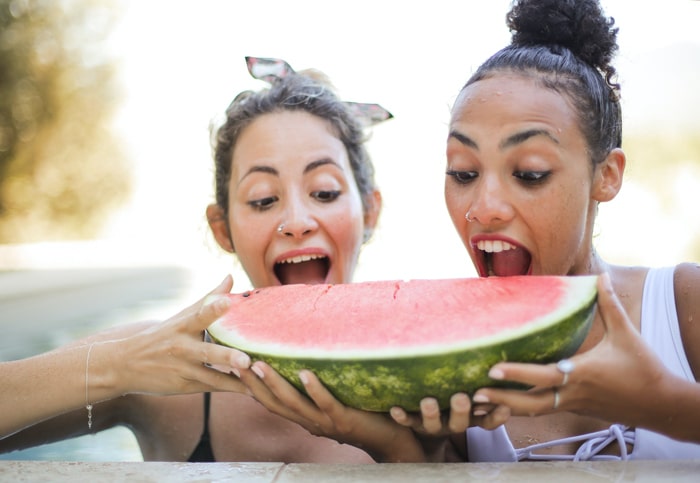
By staying well hydrated, and making leafy greens and veggies my first meal of the day, I’ve been able to cut my former cravings. Now, I just eat whenever my body calls for fuel, and make a conscious effort to keep it simple: fruit, veggies, whole grains, legumes, starch, and mushrooms.
To assist others and to hold myself accountable, I have been transparently sharing my journey on the EatingForMyL1fe blog and social media accounts. I’ve also written an eBook, Eating For My L1fe (Salt, Oil, Flour, Alcohol, Sugar) Free Whole Food Plant Exclusive: A Liberating Journey, and I do one-on-one private coaching. Whenever I feel like giving up, I remind myself how tired I was of the quality of life I had before I made all these changes, and the poor relationships I had with myself and my children. One of the biggest lessons I’ve learned is how important it is to be honest with myself—about being a refined food addict, and what it entails to be in recovery. The best advice I can give to others is that they be easy with themselves, make the journey their own, and take it one bite at a time.
You Might Also Like
Copyright 2024 Center for Nutrition Studies. All rights reserved.
Earn Your Plant-Based Nutrition Certificate
Join over 20,000 students who have improved their health, learned new skills, and even inspired career changes.
Program Overview
- 23,000+ students
- 100% online, learn at your own pace
- No prerequisites
- Continuing education credits
